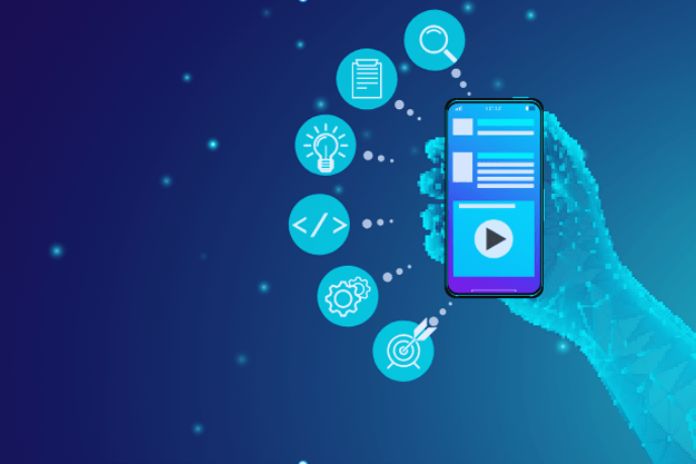The top 3 platforms adopted today for the development of mobile apps are the following frameworks: Flutter, React Native, and Unity. Below is a brief description of these frameworks with their main advantages and disadvantages.
Flutter
Shudder is an open-source structure created by Google that empowers the production of local versatile, web and work area applications utilizing a solitary code base. Its principal highlights are its responsive nature, allowing you to make appealing and smooth UIs. Shudder utilizes the Dart programming language, which is exceptionally intended for superior execution and simplicity of learning. Among the benefits of Vacillate is its phenomenal responsiveness and execution. Because of its gadget-based design, Ripple permits quick and uniform illustrations delivered on various stages.
What’s more, Ripple offers a bunch of adjustable gadgets and a wide variety of prepared-to-utilize libraries and bundles, which work on improving complicated highlights. In any case, one disadvantage of Vacillate is its overall youth contrasted with others. Despite the development of the designer local area around Shudder, there might be fewer assets and documentation than other more settled advancements. To the extent that learning goes, Shudder is somewhat simple to learn, particularly for engineers with a fundamental comprehension of programming.
It may require an investment to dominate its eccentricities, like utilizing gadgets and overseeing the application state. According to an embeddability point of view, Vacillate upholds reconciliation with various stages and outer libraries. You can utilize outsider bundles to broaden the application’s usefulness and incorporate it with outer administrations. Vacillate likewise offers extraordinary versatility, permitting you to deal with undertakings of different sizes without compromising execution.
All in all, Shudder is a system appreciated for its responsiveness, execution and capacity to make cross-stage applications with a solitary code base. While it might have a few constraints, its developing prevalence and dynamic engineering local area offers an abundance of assets and backing. Effortlessly learning, joining and versatility highlights, Vacillate is a vital decision for creating drawings in current applications.
ReactNative
React Native is an open-source system created by Facebook that permits you to construct local portable applications for iOS and Android utilizing the JavaScript language and the Respond library. One of the fundamental elements of React Native is the capacity to divide code among the two stages, decreasing the time and exertion expected to foster portable applications for both. Among the upsides of React Native is its part-based design, which permits you to make dynamic and responsive UIs.
Utilizing JavaScript, one of the most well-known programming dialects, React Native offers a low expectation to learn and adapt for web designers hoping to enter the universe of portable turn of events. Besides, because of its enormous engineering local area, React Native offers a wide variety of prepared-to-utilize libraries and bundles that improve the improvement of complex applications. In any case, one weakness of React Native is that it may not be reasonable for exceptionally tweaked applications or require stage explicit usefulness.
In some cases, it could be essential to compose extra local code to deal with unique cases or make the most of the capability of cell phones. With regards to joining, React Native offers the likelihood to utilize local modules written in Java, Objective-C or Quick to broaden the usefulness of the application. This permits you to coordinate stage explicit parts or libraries without any problem. Taking everything into account, React Native can deal with applications of various sizes, yet it might encounter execution issues assuming that the application turns out to be exceptionally intricate or activity escalates.
All in all, React Native is a flexible and well-known system for creating local versatile applications. Its natural JavaScript-based grammar, simplicity of learning, and the capacity to share code across stages go with React Native, an alluring decision for web engineers hoping to enter the universe of versatile turn of events. With its vast designer local area and various accessible libraries, React Native offers vigorous reconciliation and adaptability highlights for building fruitful portable applications.
Unity
Unity is a generally utilized cross-stage game improvement system known for its flexibility and power. One of its key elements is its capacity to make games for various stages, including PC, control center, versatile, and computer-generated reality. Unity utilizes the C# programming language to improve, offering clear and natural sentence structure. Among the benefits of Solidarity is a rich assortment of instruments and assets that make games more straightforward. Its visual supervisor lets you plan scenes and UIs instinctively, while its motor delivers excellent illustrations and embellishments.
Unity likewise offers an enormous library of resources, modules and prepared-to-utilize scripts, which speed up the improvement cycle and permit you to handily carry out cutting-edge highlights like reasonable physical science, artificial intelligence and systems administration. One disadvantage of Unity is its expectation to learn and adapt, particularly for unpracticed engineers. The intricacy of the advancement climate and the need to become familiar with the C# programming language might carve out an opportunity to dominate completely.
Likewise, Unity might be less appropriate for non-game activities or applications with explicit prerequisites outside the domain of computer games. According to an incorporation perspective, Unity offers the chance to coordinate outer libraries and modules to broaden the usefulness of the motor. It likewise upholds interoperability with different structures or advancements, permitting you to consolidate Unity with custom arrangements or outsider administrations.
Concerning adaptability, Unity can deal with activities of different sizes, yet for complex games, improvements might be expected to guarantee excellent execution on versatile or less robust gadgets. Unity is a vital structure for a cross-stage game turn of events, with many devices and assets accessible to engineers. While learning and adapting requires a critical expectation, involving C# as a programming language gives a solid groundwork for building intricate and drawing-in games. With its joining and versatility, Unity is a famous decision for game engineers and studios hoping to make intelligent encounters across various stages.
Also Read: What Is Integrated Cybersecurity And Why Is It An Enterprise Must-Have?

